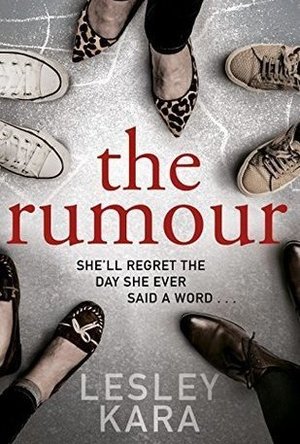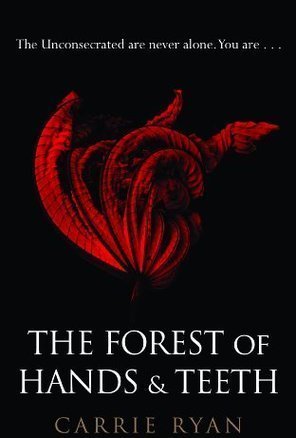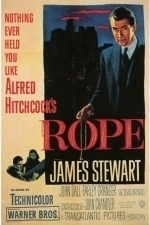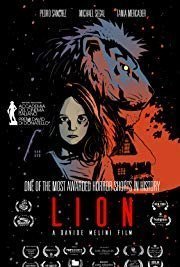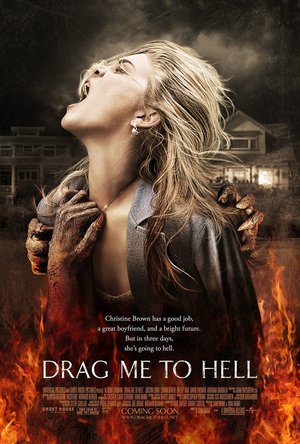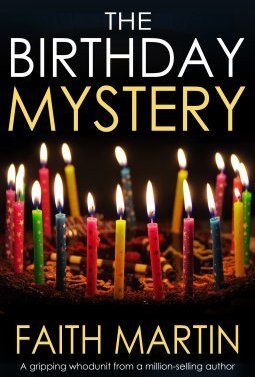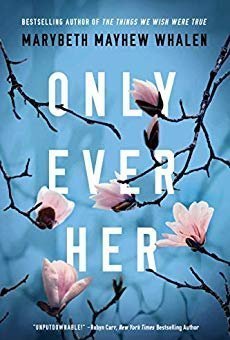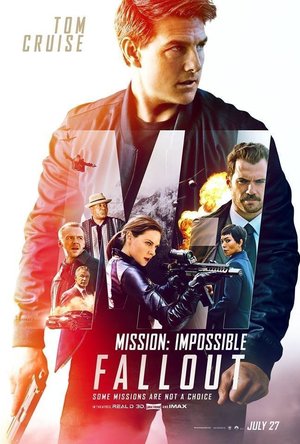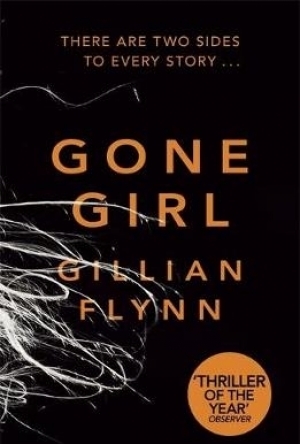Search
Search results
Ivana A. | Diary of Difference (1171 KP) rated The Rumour in Books
Nov 8, 2018
The Rumour by Lesley Kara [BOOK REVIEW]
The Rumour is Lesley Kara’s debut novel, a gripping book about what people are capable of doing when they feel threatened and exposed. A thriller about paranoia, fear and suspense unlike anything you have read before.
When Joanna moved into a small town, all she wants to do is be happy, with her son Alfie and her mother being beside her. Her son Alfie had troubles with bullies in the big city, and all his mum wants for him right now is for him to be happy and fit in the crowd.
And when a rumour starts hovering around that a woman that has killed a child a long time ago is living in the town, under a new identity, Joanna decides to share this rumour around with her friends, in hope that this will hopefully result in Alfie making some friends.
But what happens when a simple comment goes all wrong, and starts spreading like a virus? And what if this rumour happens to be true? What if there is indeed a killer living undercover in this small town, and is very upset and wants to punish those who share this rumour around? Starting with Alfie…
*
The Rumour was a thrilling read for me, as I haven’t read anything similar before. We see the story from Joanne’s point of view, but mostly, we see the story from a perspective of a mother.
We see a woman who is overthinking everything regarding her child, always asking herself twice whether she has made the right choice, and always wondering whether her child is safe.
And I am not a parent, but I can imagine that every parent over-worries about their children. Even at some point all of us would wonder whether this is normal, or we are just being paranoid again? And this initial moment has lead Joanne to become anxious and insecure, and feeling like something is wrong constantly.
I loved the plot around the child-killer, and how it slowly was developing throw a lot of characters.
I certainly did not expect that twist a few chapters before the end, and the final twist in the last chapters. This gave the story a whole new ‘’wow’’ factor, and I was really pleased.
I wouldn’t put it on my shelf of 5-star books, as I couldn’t get the biting nails moment. However, this books keeps you reading through, and I can’t wait to read more from Lesley. She is a great author.
Thank you to NetGalley and Random House UK, Transworld Publishers, for giving me an ARC copy of this book in exchange for an honest review.
When Joanna moved into a small town, all she wants to do is be happy, with her son Alfie and her mother being beside her. Her son Alfie had troubles with bullies in the big city, and all his mum wants for him right now is for him to be happy and fit in the crowd.
And when a rumour starts hovering around that a woman that has killed a child a long time ago is living in the town, under a new identity, Joanna decides to share this rumour around with her friends, in hope that this will hopefully result in Alfie making some friends.
But what happens when a simple comment goes all wrong, and starts spreading like a virus? And what if this rumour happens to be true? What if there is indeed a killer living undercover in this small town, and is very upset and wants to punish those who share this rumour around? Starting with Alfie…
*
The Rumour was a thrilling read for me, as I haven’t read anything similar before. We see the story from Joanne’s point of view, but mostly, we see the story from a perspective of a mother.
We see a woman who is overthinking everything regarding her child, always asking herself twice whether she has made the right choice, and always wondering whether her child is safe.
And I am not a parent, but I can imagine that every parent over-worries about their children. Even at some point all of us would wonder whether this is normal, or we are just being paranoid again? And this initial moment has lead Joanne to become anxious and insecure, and feeling like something is wrong constantly.
I loved the plot around the child-killer, and how it slowly was developing throw a lot of characters.
I certainly did not expect that twist a few chapters before the end, and the final twist in the last chapters. This gave the story a whole new ‘’wow’’ factor, and I was really pleased.
I wouldn’t put it on my shelf of 5-star books, as I couldn’t get the biting nails moment. However, this books keeps you reading through, and I can’t wait to read more from Lesley. She is a great author.
Thank you to NetGalley and Random House UK, Transworld Publishers, for giving me an ARC copy of this book in exchange for an honest review.
Roxanne (13 KP) rated The Forest of Hands and Teeth (The Forest of Hands and Teeth, #1) in Books
Nov 14, 2018
___ <b>3 Star Rating</b> ___
I just had to read this one as I fell in love with the front cover, it looked great so I expected a great story.
I had a love/hate relationship with this book, there were bits that were so good I wanted to shout from the rooftops but there were also parts that were so bad I wanted to run to a dark corner and cry.
<u>The bits I loved</u>
1. The suspense - Oh my life and soul I thought my heart was going to give out! That tension was fantastic! The way the author wrote the action scenes were great, the extra long description filled build ups which make you sweat and then straight into the action. The action was always really good with a nice bit of gore and clever tactics...very well done!
2. The dog - You have to have a dog in there somewhere, I love dogs! If the dog survives then that's extra points from me, I just want the animals to be ok...f*ck anyone else!
3. The Unconsecrated - Very well described, I liked the idea of 'The Fast One' and yeah I know they're Zombies...but I like Zombies.
<u>The bits I hated</u>
1. Mary! Mary! Aaaaand...Mary! - Oh what a pain in the ass! I did not like the MC one little bit. She was incredibly selfish, self centred and just plain rude. She was willing to step on anybody to get her own way. Everything was...love, love, love, OMG Mary I love you!
Mary: *Like I give a shit! I just wanna go to the Beach!*
People whom she supposedly loved were dropping like flies around her but oh well that's one less person in the way of her ocean filled dreams.
I'm sorry but I just hoped for this...
<img src="http://i.imgur.com/TJ9LVsr.jpg"; width="300" height="210"/>
2. Lack of character development - Actually, there was none. I still know nothing about the other characters, it's like they were just there to show how 'amazing' Mary really was. I so wanted at least one of the other characters to take centre stage for a while, just so I could see things from a different perspective...but no.
3. Lack of story building - So...why? When? Who? What? Did they live? Die? How did the dog get across the rope the second time?
Why the gates? The fences? Why are there Unconsecrated? What is the Sisterhood all about? What are they hiding? How did this all happen? WTF is Mary's problem?
Ok...so I know there's a second book and I've heard that it doesn't even carry the story on, if that is true I think I'm gonna scream. So many questions!
I just had to read this one as I fell in love with the front cover, it looked great so I expected a great story.
I had a love/hate relationship with this book, there were bits that were so good I wanted to shout from the rooftops but there were also parts that were so bad I wanted to run to a dark corner and cry.
<u>The bits I loved</u>
1. The suspense - Oh my life and soul I thought my heart was going to give out! That tension was fantastic! The way the author wrote the action scenes were great, the extra long description filled build ups which make you sweat and then straight into the action. The action was always really good with a nice bit of gore and clever tactics...very well done!
2. The dog - You have to have a dog in there somewhere, I love dogs! If the dog survives then that's extra points from me, I just want the animals to be ok...f*ck anyone else!
3. The Unconsecrated - Very well described, I liked the idea of 'The Fast One' and yeah I know they're Zombies...but I like Zombies.
<u>The bits I hated</u>
1. Mary! Mary! Aaaaand...Mary! - Oh what a pain in the ass! I did not like the MC one little bit. She was incredibly selfish, self centred and just plain rude. She was willing to step on anybody to get her own way. Everything was...love, love, love, OMG Mary I love you!
Mary: *Like I give a shit! I just wanna go to the Beach!*
People whom she supposedly loved were dropping like flies around her but oh well that's one less person in the way of her ocean filled dreams.
I'm sorry but I just hoped for this...
<img src="http://i.imgur.com/TJ9LVsr.jpg"; width="300" height="210"/>
2. Lack of character development - Actually, there was none. I still know nothing about the other characters, it's like they were just there to show how 'amazing' Mary really was. I so wanted at least one of the other characters to take centre stage for a while, just so I could see things from a different perspective...but no.
3. Lack of story building - So...why? When? Who? What? Did they live? Die? How did the dog get across the rope the second time?
Why the gates? The fences? Why are there Unconsecrated? What is the Sisterhood all about? What are they hiding? How did this all happen? WTF is Mary's problem?
Ok...so I know there's a second book and I've heard that it doesn't even carry the story on, if that is true I think I'm gonna scream. So many questions!
BankofMarquis (1832 KP) rated Rope (1948) in Movies
Nov 15, 2018
Master Director working some Masterful Camerawork
For my next deep dive into a film of the "Master of Suspense", Alfred Hitchock, I thought I'd pull out a "one-trick pony" film of his, 1948's ROPE. Based on a stage play, HItchock decided to film this movie as it were a play - keeping the entire film in one location (an apartment) and to film it in (what appears to be) one long take.
And, darn it all, if he doesn't pull it off.
The film starts off with a murder, we see two young men (John Dall and Farley Granger) strangling their "inferior" friend. They then decide to hold a dinner party to see if anyone can tell that they have committed murder. Included in this party is the dead friend's girlfriend (Joan Chandler), his father (Sir Cedrick Hardwicke) and their old school teacher (James Stewart).
The fun of this film isn't "will they get caught", it's "how will they get caught - and by who". The cast is wonderful (especially Hardwicke) but they all take a back seat to the absolute stellar performance of Stewart who begins to piece together that something is amiss and turns the tide on the two murderers.
The real star of this film is Director HItchock and his camera. Since he decided to make this in one long take, it took a master of organization and logistics to pull this off, having stagehands move furniture and walls out of the way (and back in again) as the camera moved around. In 1948, a camera could only hold 10 minutes worth of film, so the "one long take" aspect of this is a trick, as it is really 8 takes with strategic timing of camera movements behind walls and backs to give the illusion of seamlessness.
The interesting thing of this "trick" is that you are totally at the control of what Hitchock wants you to see (and not see). There is a scene about 1/2 way through the film that completely ignores the action and the people in the scene and focuses on the trunk the body is in. It is a masterwork, and the tension of keeping your focus there throughout the course of this part of the film is scary, tense and mesmerizing.
One last thing, Hitchock makes a cameo in every one of his films. Try to tell where Hitch is in this film (and, no, it is not as someone walking by the apartment at the beginning of the movie).
Not one of Hitchock's best, plotwise, but one of his best, camera-wise. Well worth checking out.
Letter Grade A-
8 (out of 10) stars and you can take that to the Bank (ofMarquis)
And, darn it all, if he doesn't pull it off.
The film starts off with a murder, we see two young men (John Dall and Farley Granger) strangling their "inferior" friend. They then decide to hold a dinner party to see if anyone can tell that they have committed murder. Included in this party is the dead friend's girlfriend (Joan Chandler), his father (Sir Cedrick Hardwicke) and their old school teacher (James Stewart).
The fun of this film isn't "will they get caught", it's "how will they get caught - and by who". The cast is wonderful (especially Hardwicke) but they all take a back seat to the absolute stellar performance of Stewart who begins to piece together that something is amiss and turns the tide on the two murderers.
The real star of this film is Director HItchock and his camera. Since he decided to make this in one long take, it took a master of organization and logistics to pull this off, having stagehands move furniture and walls out of the way (and back in again) as the camera moved around. In 1948, a camera could only hold 10 minutes worth of film, so the "one long take" aspect of this is a trick, as it is really 8 takes with strategic timing of camera movements behind walls and backs to give the illusion of seamlessness.
The interesting thing of this "trick" is that you are totally at the control of what Hitchock wants you to see (and not see). There is a scene about 1/2 way through the film that completely ignores the action and the people in the scene and focuses on the trunk the body is in. It is a masterwork, and the tension of keeping your focus there throughout the course of this part of the film is scary, tense and mesmerizing.
One last thing, Hitchock makes a cameo in every one of his films. Try to tell where Hitch is in this film (and, no, it is not as someone walking by the apartment at the beginning of the movie).
Not one of Hitchock's best, plotwise, but one of his best, camera-wise. Well worth checking out.
Letter Grade A-
8 (out of 10) stars and you can take that to the Bank (ofMarquis)
Lucy Buglass (45 KP) rated Lion (2017) in Movies
Jun 20, 2019
Upon discovering this short film, I was impressed with how well it had performed. During its first year of distribution, it has won 126 awards at a variety of film festivals which is quite the selling point. Walking in to the film, I didn’t know much about it but the air of mystery made my viewing experience even better. The film is set in an isolated cabin, on a snowy night, which creates the perfect backdrop for a horror tale…
From the very first scene you can tell this cabin is not a happy place to be. Straight away we’re created with sounds of domestic violence, making the viewer feel instantly uncomfortable. The father in the film is repulsive and lives in a squalor, with cigarette butts, leftover pizza and empty cans of beer dotted everywhere. Michael Segal really brought this character to life, showing us that not all villains are supernatural or machete wielding psychopaths. Some evil can be found in the average home, behind closed doors, where violence takes over. Sometimes humans can be more terrifying than anything else.
The way Lion deals with domestic violence, particularly against children, was done incredibly well. It’s not an easy topic to cover but this short makes an impact without going too far and making it gratuitous. Part of what makes this film so good is what you don’t see on screen, and how your imagination runs wild. It has a slow burning narrative that builds up the suspense and finally unleashes the climactic moment with only a few minutes to spare, providing closure and satisfaction for the spectator.
I really liked the use of special effects throughout the film, because they blended in nicely with the rest of the scene and weren’t overdone at any point. Cinematically it hits all the right notes for a horror film through it’s use of low-lighting, tense creeping moments, and an excellent use of music. Jump scares and gore weren’t needed in Lion, because it manages to deliver real horror in a much more subtler, but effective way. The presence of the lion throughout was a good motif to use as well, as they’re synonymous with courage and being a fighter. You’ll see what I mean when you watch it.
Lion is an incredibly important short film that I believe is a must watch, even for those who don’t tend to reach for horrors. The final card at the end reiterates the important message that is present throughout the film, and it really resonated with me. It’s a film with fantasy elements, yet still deep rooted within reality that it makes you want to stand up and take action in any way you can.
https://jumpcutonline.co.uk/lion-short/
From the very first scene you can tell this cabin is not a happy place to be. Straight away we’re created with sounds of domestic violence, making the viewer feel instantly uncomfortable. The father in the film is repulsive and lives in a squalor, with cigarette butts, leftover pizza and empty cans of beer dotted everywhere. Michael Segal really brought this character to life, showing us that not all villains are supernatural or machete wielding psychopaths. Some evil can be found in the average home, behind closed doors, where violence takes over. Sometimes humans can be more terrifying than anything else.
The way Lion deals with domestic violence, particularly against children, was done incredibly well. It’s not an easy topic to cover but this short makes an impact without going too far and making it gratuitous. Part of what makes this film so good is what you don’t see on screen, and how your imagination runs wild. It has a slow burning narrative that builds up the suspense and finally unleashes the climactic moment with only a few minutes to spare, providing closure and satisfaction for the spectator.
I really liked the use of special effects throughout the film, because they blended in nicely with the rest of the scene and weren’t overdone at any point. Cinematically it hits all the right notes for a horror film through it’s use of low-lighting, tense creeping moments, and an excellent use of music. Jump scares and gore weren’t needed in Lion, because it manages to deliver real horror in a much more subtler, but effective way. The presence of the lion throughout was a good motif to use as well, as they’re synonymous with courage and being a fighter. You’ll see what I mean when you watch it.
Lion is an incredibly important short film that I believe is a must watch, even for those who don’t tend to reach for horrors. The final card at the end reiterates the important message that is present throughout the film, and it really resonated with me. It’s a film with fantasy elements, yet still deep rooted within reality that it makes you want to stand up and take action in any way you can.
https://jumpcutonline.co.uk/lion-short/
Chris Sawin (602 KP) rated Drag Me to Hell (2009) in Movies
Jun 20, 2019
Christine Brown seems to have everything going well for her at this point in her life. She has a boyfriend who cares about her and loves her unconditionally, a great job at the bank as a loan officer with more than enough room for advancement in the company, and speaking of, it's between her and one other employee for the vacant assistant manager position. One day though, a strange looking gypsy shows up at Christine's bank asking for another extension before they foreclose on her home. After talking it over with her boss, it's up to Christine to decide on approving the loan and she comes to the conclusion of denying it. Mrs. Ganush begs and pleads with Christine, but Christine won't budge on her decision. After feeling like Christine wronged her by denying her pleas, Mrs. Ganush puts a curse on her and unless Christine can find some sort of loophole, she'll be going to hell in three days.
This is Sam Raimi's return to the horror genre, in case you hadn't heard that in the trailer or anything else promoting the film. Drag Me To Hell has already had such an overwhelmingly positive response when it comes to feedback and the truth of the matter is that the film is genuinely that entertaining. Not only did Sam Raimi return to the horror genre, but he did it so flawlessly and without missing a beat. He's on top of his game and, dare I say, the best he's ever been. The film only seemed to get better as it progressed. It's somehow capable of combining comedy, suspense, romance, and horror all into one amazing final product. A film that can do something like make you laugh out loud one minute, scare you the next, gross you out after that, and tear at your heartstrings is something special. And it's not like the film does that one time and calls it quits. It goes through that cycle (laugh, scare, gross, heartwarming) over and over again throughout the film. Sam Raimi has struck cinematic gold.
Drag Me To Hell is a hell of a lot of fun. It truly has something to offer anyone looking for a good time at the movies. Not only is the film based on an original story, but it's an original story that is worth being told, worth listening to, and incredibly entertaining. Originality seems to be extinct when it comes to horror these days. It's just so refreshing to see a film that not only isn't a remake, but drenches itself in the fact that it offers something new. Sam Raimi has delivered a cinematic feature that has rejuvenated what we once referred to as "the horror film." Let's hope that other filmmakers can tread the same path that he has paved the way with.
This is Sam Raimi's return to the horror genre, in case you hadn't heard that in the trailer or anything else promoting the film. Drag Me To Hell has already had such an overwhelmingly positive response when it comes to feedback and the truth of the matter is that the film is genuinely that entertaining. Not only did Sam Raimi return to the horror genre, but he did it so flawlessly and without missing a beat. He's on top of his game and, dare I say, the best he's ever been. The film only seemed to get better as it progressed. It's somehow capable of combining comedy, suspense, romance, and horror all into one amazing final product. A film that can do something like make you laugh out loud one minute, scare you the next, gross you out after that, and tear at your heartstrings is something special. And it's not like the film does that one time and calls it quits. It goes through that cycle (laugh, scare, gross, heartwarming) over and over again throughout the film. Sam Raimi has struck cinematic gold.
Drag Me To Hell is a hell of a lot of fun. It truly has something to offer anyone looking for a good time at the movies. Not only is the film based on an original story, but it's an original story that is worth being told, worth listening to, and incredibly entertaining. Originality seems to be extinct when it comes to horror these days. It's just so refreshing to see a film that not only isn't a remake, but drenches itself in the fact that it offers something new. Sam Raimi has delivered a cinematic feature that has rejuvenated what we once referred to as "the horror film." Let's hope that other filmmakers can tread the same path that he has paved the way with.
BookwormMama14 (18 KP) rated The Secret of Pembrooke Park in Books
Jan 2, 2019
Mystery, murder, treasure and romance. All of which can be found in Julie Klassen’s most recent book, The Secret of Pembrooke Park. This book will have you turning pages until the wee hours of morning.
England, 1817, Abigail Foster and her family are in the midst of a financial crisis that could ruin them forever, when an offer to let Pembrooke Park is brought before them. The house has been vacant for almost 20 years, and there is a lot of clean up needed before they can move in, but the terms seem too good to be true. This is just the opportunity the Foster’s need so they can begin to rebuild their lives. Abigail and her father travel to the village of Caldwell to begin fixing up the property. It is not long before whispers and rumors make it to Abigail’s ears regarding the previous inhabitants. Whispers of treasure and murder and ghosts. What happened here so many years ago? Will Abigail be able to uncover the truth? Clues are found and mysterious letters are sent to Abigail from what appears to be someone who lived at Pembrooke Park. Does the miniature doll’s house hold the key to where the treasure was hidden? Abigail befriends the previous steward’s daughter, Leah Chapman, who has her own mysteries of the past that she is concealing. William Chapman, Leah’s sister and the local pastor, seems to become interested in Abigail, but will Miss Foster’s sister, Louisa sweep him off his feet as she does to every man she meets? And Mr. Chapman is not the only man that has taken an interest in Abigail. Truth, faith and love are the primary factors guiding our players. “Lay not up for yourselves treasures upon earth, where moth and rust doth corrupt.”
I have not enjoyed a book so much as I enjoyed reading The Secret of Pembrooke Park. I stayed up late many a night reading when I should have been sleeping. Most definitely a page turner if I ever read one. I cannot praise Mrs. Klassen enough for her fine works. The historical accuracy, the depth, the feeling. Creative liberties are used in regards to classes intermingling, but that’s what makes her books so intriguing. The suspense and mystery was mild (compared to the thrillers my husband reads), but it was enough to make my head turn at the sounds of my own house creaking in the night. I am looking forward to her next release. I told my husband that I want the rest of Julie Klassen’s books for Christmas this year!
As a part of their blogger review program, I received a free copy of The Secret of Pembrooke Park from Bethany House Publishers. All opinions expressed are mine alone.
England, 1817, Abigail Foster and her family are in the midst of a financial crisis that could ruin them forever, when an offer to let Pembrooke Park is brought before them. The house has been vacant for almost 20 years, and there is a lot of clean up needed before they can move in, but the terms seem too good to be true. This is just the opportunity the Foster’s need so they can begin to rebuild their lives. Abigail and her father travel to the village of Caldwell to begin fixing up the property. It is not long before whispers and rumors make it to Abigail’s ears regarding the previous inhabitants. Whispers of treasure and murder and ghosts. What happened here so many years ago? Will Abigail be able to uncover the truth? Clues are found and mysterious letters are sent to Abigail from what appears to be someone who lived at Pembrooke Park. Does the miniature doll’s house hold the key to where the treasure was hidden? Abigail befriends the previous steward’s daughter, Leah Chapman, who has her own mysteries of the past that she is concealing. William Chapman, Leah’s sister and the local pastor, seems to become interested in Abigail, but will Miss Foster’s sister, Louisa sweep him off his feet as she does to every man she meets? And Mr. Chapman is not the only man that has taken an interest in Abigail. Truth, faith and love are the primary factors guiding our players. “Lay not up for yourselves treasures upon earth, where moth and rust doth corrupt.”
I have not enjoyed a book so much as I enjoyed reading The Secret of Pembrooke Park. I stayed up late many a night reading when I should have been sleeping. Most definitely a page turner if I ever read one. I cannot praise Mrs. Klassen enough for her fine works. The historical accuracy, the depth, the feeling. Creative liberties are used in regards to classes intermingling, but that’s what makes her books so intriguing. The suspense and mystery was mild (compared to the thrillers my husband reads), but it was enough to make my head turn at the sounds of my own house creaking in the night. I am looking forward to her next release. I told my husband that I want the rest of Julie Klassen’s books for Christmas this year!
As a part of their blogger review program, I received a free copy of The Secret of Pembrooke Park from Bethany House Publishers. All opinions expressed are mine alone.
Midge (525 KP) rated The Birthday Mystery in Books
Dec 29, 2018
Strong characters (2 more)
Good mystery
Great for food-lovers
Great Whodunit!
Over recent months I've become a great fan of cozy mysteries so, when I saw a new series featuring Jenny Starling being launched, I knew I had to read "The Birthday Mystery." Also, it has a culinary theme which I love and a little light humour.
First, we are introduced to Jenny who is catering for the twenty-first birthday party of upper-class twins, Alicia and Justin. In her late twenties, Jenny is an impressive woman. Curvaceous and sexy, she’s a modern single woman, living the lifestyle that suits her – that of a travelling cook. Her famous father is a ‘celebrity’ cook, divorced from Jenny’s mother. Jenny is happy travelling the country catering for events and cooking great food. She is on a mission to bring back traditional home cooked food and to offer new and exciting recipes made with fresh ingredients. She arrives at the twins family country house located in a picturesque and charming village and is immediately met by the police. A young man has drowned in the pond. Was it an accident or murder?
The birthday party goes ahead and then, just after midnight, everyone gathers for a champagne toast . . . and one of the guests falls down dead. The police are baffled and there is a whole party full of suspects.
Jenny finds crime very distracting, especially when there is chocolate to temper or pike to poach. She is very observant, with an agile mind and an amazing ability to interpret clues and hidden meanings. Her wit and sense of humour help her sanity when all around her, people are dropping like flies. When it comes to someone possibly adding the extra ingredient of poison to her own precious recipes, Jenny isn't going to take it lying down. She has a reputation to protect.
Jenny Starling won't stop until the murderer is found.
There are many suspects in this mystery, clues a-plenty and red herrings all the way through this book. It was a thoroughly satisfying read and I often found myself asking the same questions as Jenny and I was kept in suspense to the end. The pacing in "The Birthday Mystery" was very good and I never lost interest, as it wasn't long before something intriguing would happen. Things came together for a great finish and wrapped everything up very neatly.
I'm definitely looking forward to reading the next novel featuring Jenny Starling very soon and other books by the author, Faith Martin. "The Birthday Mystery" whets your appetite for more to come.
My thanks to NetGalley, Joffe Books and the author for providing me with an advanced copy of this novel.
First, we are introduced to Jenny who is catering for the twenty-first birthday party of upper-class twins, Alicia and Justin. In her late twenties, Jenny is an impressive woman. Curvaceous and sexy, she’s a modern single woman, living the lifestyle that suits her – that of a travelling cook. Her famous father is a ‘celebrity’ cook, divorced from Jenny’s mother. Jenny is happy travelling the country catering for events and cooking great food. She is on a mission to bring back traditional home cooked food and to offer new and exciting recipes made with fresh ingredients. She arrives at the twins family country house located in a picturesque and charming village and is immediately met by the police. A young man has drowned in the pond. Was it an accident or murder?
The birthday party goes ahead and then, just after midnight, everyone gathers for a champagne toast . . . and one of the guests falls down dead. The police are baffled and there is a whole party full of suspects.
Jenny finds crime very distracting, especially when there is chocolate to temper or pike to poach. She is very observant, with an agile mind and an amazing ability to interpret clues and hidden meanings. Her wit and sense of humour help her sanity when all around her, people are dropping like flies. When it comes to someone possibly adding the extra ingredient of poison to her own precious recipes, Jenny isn't going to take it lying down. She has a reputation to protect.
Jenny Starling won't stop until the murderer is found.
There are many suspects in this mystery, clues a-plenty and red herrings all the way through this book. It was a thoroughly satisfying read and I often found myself asking the same questions as Jenny and I was kept in suspense to the end. The pacing in "The Birthday Mystery" was very good and I never lost interest, as it wasn't long before something intriguing would happen. Things came together for a great finish and wrapped everything up very neatly.
I'm definitely looking forward to reading the next novel featuring Jenny Starling very soon and other books by the author, Faith Martin. "The Birthday Mystery" whets your appetite for more to come.
My thanks to NetGalley, Joffe Books and the author for providing me with an advanced copy of this novel.
Kristy H (1252 KP) rated Only Ever Her in Books
Jun 21, 2019
Annie Taft is 26, ready to marry Scott Hanson, and move somewhere fresh. Away from the town of Ludlow, where she is known as the daughter of the murdered woman. Cordell Lewis was sentenced to life without parole for the murder of Annie's mother, Lydia Taft--largely on the word of Annie, who was only three. But his lawyer is advocating for a new trial--and Cordell's release. It's now four days before Annie's wedding; Cordell is out of jail, and Annie has disappeared. At first, Annie's aunt, Faye, who has raised her niece since the age of three, thinks she has hidden away due to nerves. But as the wedding date inches closer, Faye and her daughter, Clary, realize something is amiss. Was it Cordell, seeking revenge after all this time? Or someone who knows Annie well?
"Some people hear their mother's voices in their heads, but Annie hears her aunt's, the closest thing she has to a mother."
This book wasn't anything like what I was expecting, and honestly, it was a rather strange tale, but it was still rather interesting. It's a character-driven read, not a suspense novel, but wow, I got really attached to some of these characters. I picked this one up based solely on the strength of the last Marybeth Mayhew Whalen novel I read, WHEN WE WERE WORTHY. She has a real knack for capturing her characters: they jump off they page and stick with you. In particular, I fell hard for Faye and Clary in this one. And, of course, there was Annie, who was always there, motivating nearly every character:
"She has to make the town happy, like she always has. It is her act of service, her offering on behalf of the greater good. When you're the only survivor of the town's darkest moment, you do whatever you can to bring light."
There are a lot of narrators in the novel, but together they expertly show the web and ties of a small town, where it seems everyone has a secret of some sorts. I thought the beginning of the book was a bit slow, but it picked up in the second half, becoming rather dramatic and suspenseful. It's also an emotional read, as you become more and more invested in the characters. I expected more with Annie's storyline and disappearance--the ending sort of fizzled there for me. The more compelling piece is truly her mother's murder and its aftermath, especially on Faye.
Still, this was an interesting and poignant read featuring some excellent characters. While it was a bit slow to start, I found myself quite immersed in the second half. I really enjoy what Whalen can do with her small town personalities. 3.5 stars.
"Some people hear their mother's voices in their heads, but Annie hears her aunt's, the closest thing she has to a mother."
This book wasn't anything like what I was expecting, and honestly, it was a rather strange tale, but it was still rather interesting. It's a character-driven read, not a suspense novel, but wow, I got really attached to some of these characters. I picked this one up based solely on the strength of the last Marybeth Mayhew Whalen novel I read, WHEN WE WERE WORTHY. She has a real knack for capturing her characters: they jump off they page and stick with you. In particular, I fell hard for Faye and Clary in this one. And, of course, there was Annie, who was always there, motivating nearly every character:
"She has to make the town happy, like she always has. It is her act of service, her offering on behalf of the greater good. When you're the only survivor of the town's darkest moment, you do whatever you can to bring light."
There are a lot of narrators in the novel, but together they expertly show the web and ties of a small town, where it seems everyone has a secret of some sorts. I thought the beginning of the book was a bit slow, but it picked up in the second half, becoming rather dramatic and suspenseful. It's also an emotional read, as you become more and more invested in the characters. I expected more with Annie's storyline and disappearance--the ending sort of fizzled there for me. The more compelling piece is truly her mother's murder and its aftermath, especially on Faye.
Still, this was an interesting and poignant read featuring some excellent characters. While it was a bit slow to start, I found myself quite immersed in the second half. I really enjoy what Whalen can do with her small town personalities. 3.5 stars.
Gareth von Kallenbach (980 KP) rated Mission: Impossible - Fallout (2018) in Movies
Jul 8, 2019
Ethan Hunt (Tom Cruise) is back and on a mission to stop a terrorist group, known as The Apostles, from acquiring three uranium cores that they will use to create nuclear devices. Hunt and his Impossible Mission Force (IMF) team (Simon Pegg and Ving Rhames) set up a black market deal to purchase the cores. But during the buy Luther (Rhames) is taken hostage. In a rescue attempt Hunt and Benji (Pegg) let the cores slip into the hands of The Apostles. Due to Hunt’s choice to save his team over protecting the cores has put the world in danger of nuclear attack. Luckily, the head of the IMF, Alan Hunley (Alec Baldwin, has received intelligence that an arms dealer known as the White Widow (Vanessa Kirby) is looking to broker a deal for the cores. The only problem is the price is not money but the breaking out of the former IMF nemesis and anarchist Solomon Lane (Sean Harris). Hunt, eager for redemption, agrees to once again track down the cores. But the CIA want to make sure that this time the job is done right, so Director Erica Sloan (Angela Bassett) demands her top cleaner August Walker (Henry Cavill) accompany. With the help of the CIA they will try and break Lane out of prison and save the world from a catastrophic nuclear attack.
This film, the sixth installment of the Mission: Impossible film franchise, is a true action packed summer blockbuster. Written and directed by Christopher McQuarrie (Mission: Impossible – Rogue Nation, Jack Reacher) this film has the action and suspense that viewers have come to expect from these films. Cruise, who famously does all of his own stunts, puts in a stellar performance, as does the rest of the cast. Rebecca Ferguson, as assassin and Hunt love interest Ilsa Faust, has good on screen chemistry with Cruise. The overall vision of the film is big and everything is well shot. One example is seamlessly shot motorcycle/car chase through Paris streets, with narrow misses, extreme speeds and iconic scenery. Along with all of the action you get the sometimes corny dialog that you can expect. As long as you expect it, and maybe embrace it, you will definitely enjoy the film. At 2 hours and 27 minutes the runtime might seem long but the pace is really good so it does not feel that long.
This is the best action film of the summer I have seen so far. The attention to detail in the action scenes really shows through. The twists and turns of the story keep you as engaged as the jaw dropping stunts. Maybe not the film for everyone but a great action/spy movie. For me it is definitely a film that should be seen in theaters, maybe more than once.
This film, the sixth installment of the Mission: Impossible film franchise, is a true action packed summer blockbuster. Written and directed by Christopher McQuarrie (Mission: Impossible – Rogue Nation, Jack Reacher) this film has the action and suspense that viewers have come to expect from these films. Cruise, who famously does all of his own stunts, puts in a stellar performance, as does the rest of the cast. Rebecca Ferguson, as assassin and Hunt love interest Ilsa Faust, has good on screen chemistry with Cruise. The overall vision of the film is big and everything is well shot. One example is seamlessly shot motorcycle/car chase through Paris streets, with narrow misses, extreme speeds and iconic scenery. Along with all of the action you get the sometimes corny dialog that you can expect. As long as you expect it, and maybe embrace it, you will definitely enjoy the film. At 2 hours and 27 minutes the runtime might seem long but the pace is really good so it does not feel that long.
This is the best action film of the summer I have seen so far. The attention to detail in the action scenes really shows through. The twists and turns of the story keep you as engaged as the jaw dropping stunts. Maybe not the film for everyone but a great action/spy movie. For me it is definitely a film that should be seen in theaters, maybe more than once.
Leah Lopez (7 KP) rated Gone Girl in Books
Nov 6, 2019
This book had many key elements to keep the reader constantly entertained.
1) The characters had their own voice; their own emotions and thoughts which was clearly recognised through per chapter dedicated to them. My mind alternated between which character I liked/hated understood/or not worth understanding. At the beginning of the book I was on Nick's side. It seemed Amy was some "nagging wife" and it would be easy to become annoyed by all her "stupid traditions" but then, I read Amy's side and then I was like..."Okay, now I understand why the traditions are important and how much she loves Nick..." When he come home to find his wife had disappeared and his house looked "ransacked" I began questioning the possible theories to her disappearance. I thought:
S.P.O.I.L.E.R. A.L.E.R.T
She hasn't been taken. She isn't dead. It is all but a set up: to get Nick to realise how much he loves Amy and he be lost without her. I thought she has just gone away for a few days.
My first shock? Nick cheating on Amy
but then; had it been a shock/ plot twist shock, or did I just not want to believe that of him?
It was easy from this point to hate Nick. He had been having an affair, he was violent, he was a liar.
I began siding with Amy.
Still...it became clear through Nick's request on finding out the truth that she too was a liar; but a more-well trained liar and not spontaneous? She was evil; she played people to her needs. She used them to better herself.
Towards the end of the book; when she came back home and reported her "kidnap and rape" from Desi it was here I thought this is going to end pretty shit now...but once again I was surprised. I began to hate Amy and like Nick. Still Nick demonstrated his violence towards Amy by strangling her and detailing his enjoyment of her pulsating struggle for breath. When Amy came back and explained the truth, and furthermore...I wanted her to be arrested; to find that tiny bit of evidence she didn't think of...something none of us would have thought of but maybe read and thought nothing of it at the time. Still, she still had things up her sleeve and still ten steps in front of Nick-the semen and her way of permanently keeping him in her life. I knew it had to end, but I think it would have been more entertaining on something she left out, rather than her once again winning.
Overall:
a great suspense-filled book that makes you yo-yo between liking/hating the characters!
Will be looking for more books written by her!
1) The characters had their own voice; their own emotions and thoughts which was clearly recognised through per chapter dedicated to them. My mind alternated between which character I liked/hated understood/or not worth understanding. At the beginning of the book I was on Nick's side. It seemed Amy was some "nagging wife" and it would be easy to become annoyed by all her "stupid traditions" but then, I read Amy's side and then I was like..."Okay, now I understand why the traditions are important and how much she loves Nick..." When he come home to find his wife had disappeared and his house looked "ransacked" I began questioning the possible theories to her disappearance. I thought:
S.P.O.I.L.E.R. A.L.E.R.T
She hasn't been taken. She isn't dead. It is all but a set up: to get Nick to realise how much he loves Amy and he be lost without her. I thought she has just gone away for a few days.
My first shock? Nick cheating on Amy
but then; had it been a shock/ plot twist shock, or did I just not want to believe that of him?
It was easy from this point to hate Nick. He had been having an affair, he was violent, he was a liar.
I began siding with Amy.
Still...it became clear through Nick's request on finding out the truth that she too was a liar; but a more-well trained liar and not spontaneous? She was evil; she played people to her needs. She used them to better herself.
Towards the end of the book; when she came back home and reported her "kidnap and rape" from Desi it was here I thought this is going to end pretty shit now...but once again I was surprised. I began to hate Amy and like Nick. Still Nick demonstrated his violence towards Amy by strangling her and detailing his enjoyment of her pulsating struggle for breath. When Amy came back and explained the truth, and furthermore...I wanted her to be arrested; to find that tiny bit of evidence she didn't think of...something none of us would have thought of but maybe read and thought nothing of it at the time. Still, she still had things up her sleeve and still ten steps in front of Nick-the semen and her way of permanently keeping him in her life. I knew it had to end, but I think it would have been more entertaining on something she left out, rather than her once again winning.
Overall:
a great suspense-filled book that makes you yo-yo between liking/hating the characters!
Will be looking for more books written by her!
